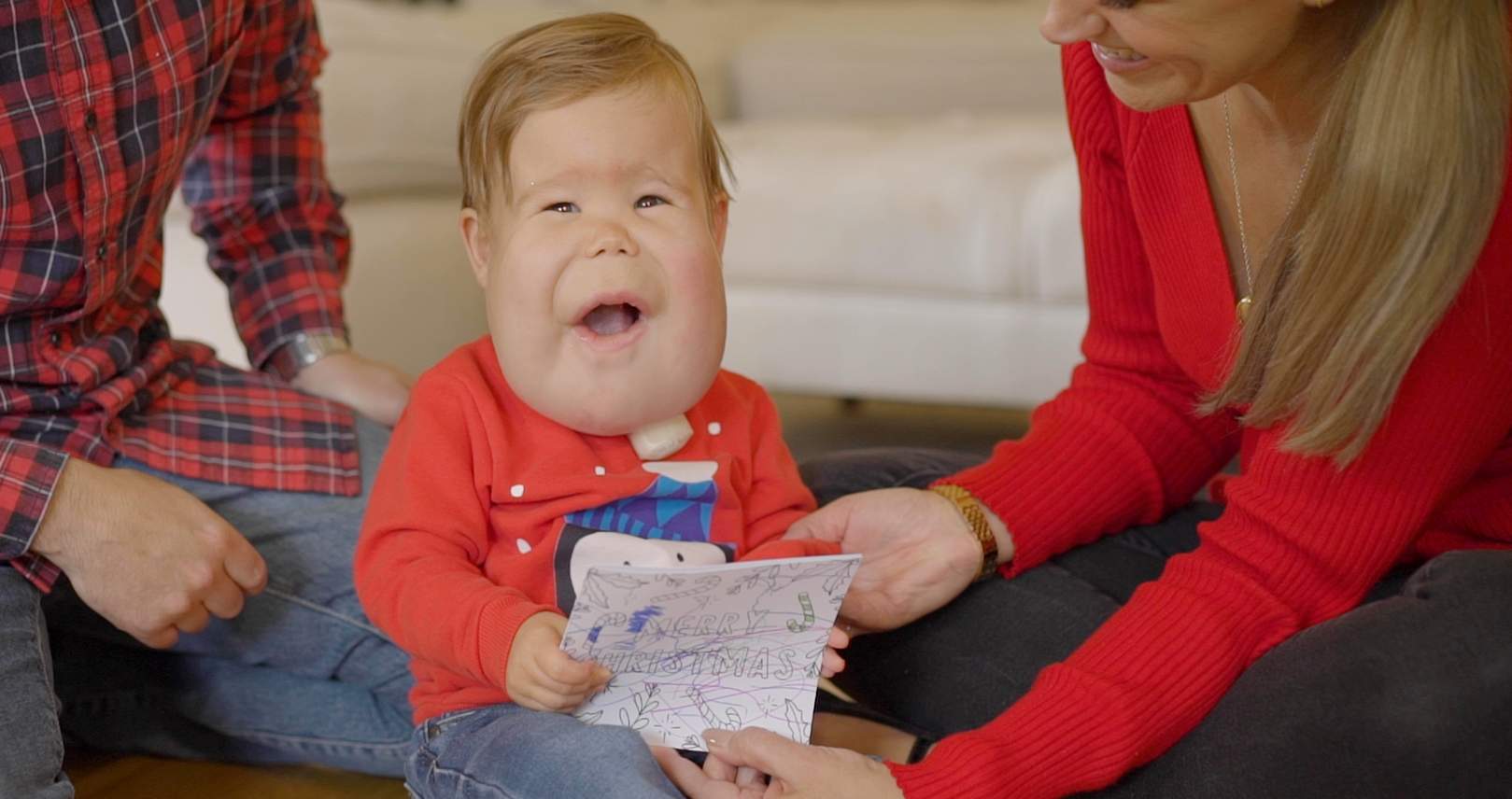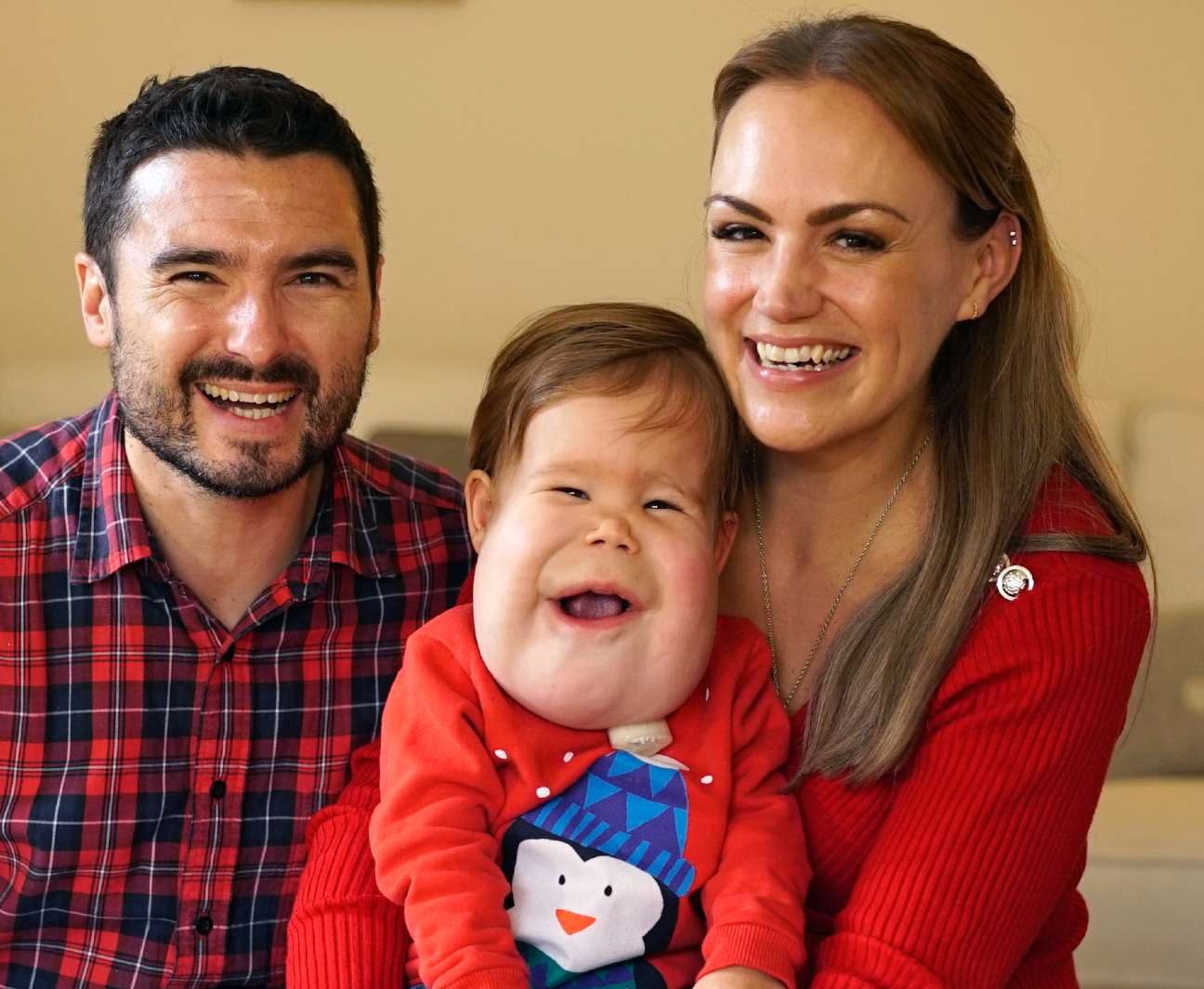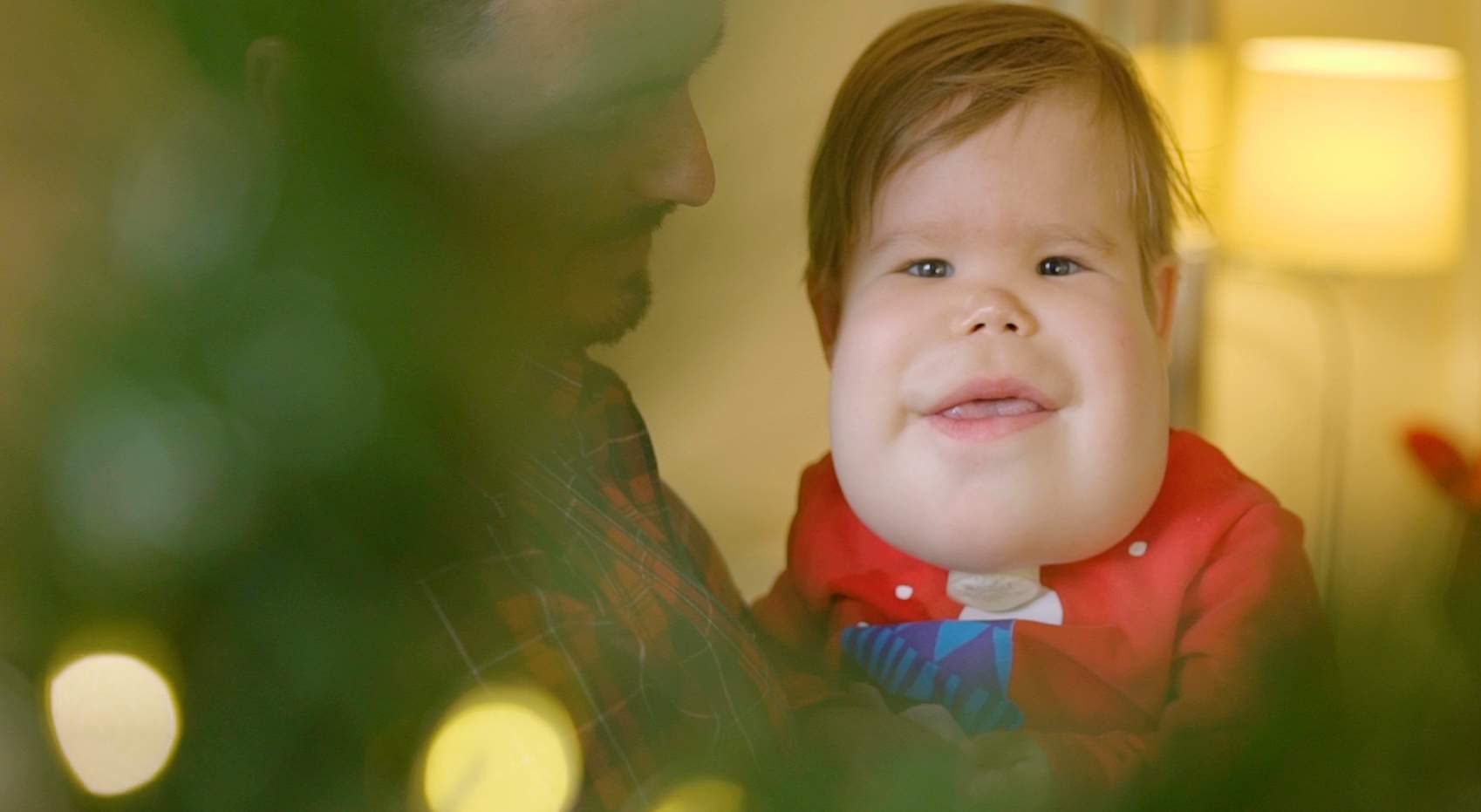My son Finley is a real entertainer. He’s two years old and already loves to make us laugh, by creating different facial expressions and breaking into laughter as soon as we crack a smile. I wouldn’t be surprised if he became a performer when he’s older, which will be good for his confidence and self-esteem as he grows up.
I already know that confidence could be an issue for Finley as he becomes more aware of his visible difference – especially as he starts to notice other people’s reactions around him. Finley was born with a condition called lymphangioma. Lymphangiomas are non-cancerous, fluid-filled cysts that appear in lymphatic vessels and don’t drain away. Finley’s case of lymphangioma presents as swelling in the face and extends to his airways, which is why he needs a tracheotomy. Some days it can look more swollen, some days less. It fluctuates.
The support I’ve received from Changing Faces is like a kind of armour I can bring out when I need it.
Being pregnant during the pandemic was hard enough, but not knowing what you’re dealing with is scary, no matter how many leaflets you’re given to read. It turned out that nothing could have prepared us for the journey we had once Finley was born.
I naively thought we would have to spend a few weeks in hospital following the delivery, but we were still there six months later. During this time, we hardly left the site – we were in a big hospital bubble surrounded by other families with babies and children who were also seriously ill. In fact, it wasn’t until we got out of hospital and we started to see other families with “healthy looking” babies that we realised what we’d been through.
Seeing friends, NCT parents and other people going home during the same week as having their babies was more difficult than I thought. It felt like everyone else had the perfect birth, perfect pregnancies, perfect babies. I found it particularly hard on social media. Over Christmas, I felt so envious of other people on social media at home in their matching pyjamas, or posts with captions like “baby’s first Christmas” when Finley was in the Paediatric Intensive Care Unit (PICU) on life support.
To counteract these feelings, I started to flood my Instagram page with more content that was relevant to our situation. It’s how I discovered other people with lymphangioma, and Changing Faces. I connected to so many people online that I would call friends. We talk all the time – compare notes, compare gripes. Social media is an amazing resource with helpful information and real-life experiences from others that help you to feel less alone.

Changing Faces was there for me when I needed their support the most. I remember a particular moment that triggered me enough to reach out for support. It happened without my partner, Keith. We’d been together so intensely for such a long period of time during Finley’s first year. It was an adjustment for Keith to go back to work and for myself to take care of Finley without him.
On this day, Finley and I were out with a friend and their child to have a meander around a local petting farm. I spotted a girl, around eight years of age, staring at Finley. She then started to follow us around relentlessly, all around the farm, gaping at Finley in his buggy. It became quite menacing to see her pull and contort her face to mimic his condition. She was also pointing at him and saying “what’s wrong with his face?”
I know that the little girl was only a child and didn’t know better, but it was the first time that a situation like this had happened to me and I felt trapped. Watching her mum sit and not say anything to her daughter or to me was hurtful and I found it tough to deal with. I ended up in tears, rushing out the park and cutting a nice day short with my friend.
What upset me most was the thought of Finley starting to recognise this type of behaviour as he grew up – maybe even from an early age. I didn’t want him to have to go through stares and points and laughter, just for existing. And I didn’t want him to see me get upset each time either.
When I told Keith, his reaction was anger. And I thought: Well, that’s not an appropriate reaction either. We don’t want to bring Finley up where he feels angry or upset with each negative reaction he receives for looking different.
For families like mine, Changing Faces is a lifeline. It’s why I’d urge anyone who is considering donating this Christmas to do so, to support the vital wellbeing and skin camouflage services that so many people rely on.
I got in touch with Changing Faces because I wanted to get some ideas of the kind of things we could do the next time something like this happened. The workshop and online support group I attended was so helpful and I took away so much from both forms of support. I learnt simple tools to deflect unwanted attention away from us. I also learnt to understand how older children internalise negative behaviours, something that will come in handy when Finley starts to notice these things himself.
Before the support from Changing Faces, I would go into overdrive. If people even glanced at Finley, I would launch into a huge explanation about his condition and medical history. I’ve since learnt that I don’t owe anyone an explanation if I don’t feel like it – even if they ask. It can be emotionally draining sharing your personal life with strangers.
Being a parent of a child with a visible difference can still feel daunting some days. I feel a lot more confident when I’m not alone out and about with Finley, but if I’m on my own then the advice I’ve received from Changing Faces is never far from my mind and that feels like armour. I know that if someone makes comments or approaches us I have the right tools to create a positive encounter. It’s made me feel much more confident than I did before and able to live our lives as normally as possible and not hide ourselves away for fear of being stared at.
I would urge any parent and anyone who has a visible difference to reach out to Changing Faces. Through Changing Faces we’ve gained friendships with other families that I hope will last many years. Connecting with other people in similar situations at that time in Finley’s life was so encouraging and reassuring. Being a medical parent, as well as a parent of a child with a visible difference can be incredibly isolating. Hearing from parents whose children are doing well – going to school, going on holidays and reaching their full potentials, was amazing.
I know that Changing Faces will always be there for Finley as he reaches each milestone, like starting school. For families like mine, Changing Faces is a lifeline. It’s why I’d urge anyone who is considering donating this Christmas to do so, to support the vital wellbeing and skin camouflage services that so many people rely on.

